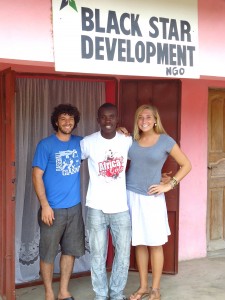The flight may only take 45 minutes but I feel like I’m a world away. Lagos, Nigeria thrives on a hectic energy, everything is fast and you live fast or die. However, life expectancy in the city is substantially less than the surrounding rural areas and this reflects the toll that this lifestyle takes. Lagos is developing but it is being held back by its infrastructure. Lack of electrical power and drivable roads make starting a business hard and the few that do make it seem to give little back in the way of taxes or assistance to their communities. Whilst there are many parallels to this in Europe there are few places where you can see such poverty contrasted against such wealth. The gap between the classes of society in Nigeria is ever present especially when you can see the shantytowns from the hotels that charge a basic rate of £240 per night. Corruption also plays such a pivotal roll in society that it will take many years before the money given to the government actually gets to the communities that need it. However, most of the people I met in Nigeria are proud of their country and I heard many times that Nigeria is a land where you can make it if you try.
I’ve not been in Ghana long enough to even begin to form an idea about the infrastructure here but I can already see some stark differences. When I arrived in the city of Accra, which has a central airport, I was instantly hit by a better quality of air. When travelling along the roads I found myself relaxing as the cars followed the road markings and drove safely as appose to the highly reckless driving that is prevalent in Lagos. Whilst most of the Ghanaian’s I have met complain about the Accra traffic the roads still resemble the quieter days of Lagos driving.
From Accra the project travelled west to Busua to link with the Black Star Development Projects Non-Governmental Organisation (NGO). After sitting for hours in the Tro-Tro’s (local shared transport) Busua is a welcome relief. Busua sits in a wonderful location, it has a constant sea breeze and an open and relaxed atmosphere. Upon arrival Ebenezer the Volunteer Coordinator in training met the Global Youth Video Project. From the office we headed straight to the surf shop on the beach where I met Tabitha the Senior Volunteer Coordinator. If you plan on volunteering with Black Star you can be assured of a fantastic welcome. All of the staff here are brilliant and have a strong commitment to ensuring that responsible tourism and sustainability is central to their role. After Tabitha and Ebenezer ran through some of the volunteering induction I was taken to my accommodation so I could freshen up and return to learn more about the Black Star NGO. When I returned the power was still off so we continued to talk about the role of the NGO and the local customs and acceptable behaviours for tourists and visitors.

